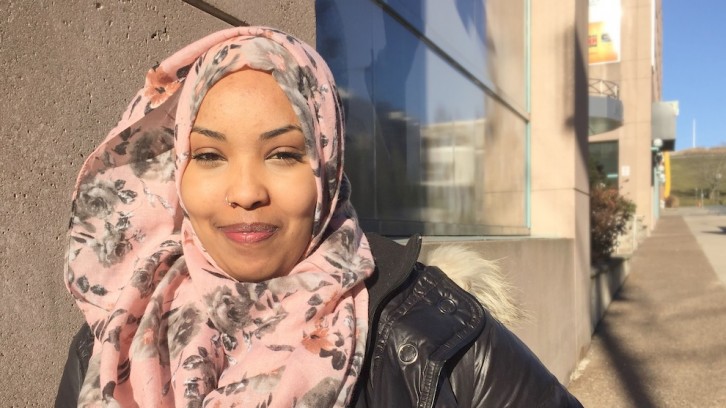Aid
Dal student aims to raise $15K for Ethiopian drought
Amina Abawajy is aiming to draw attention to the 10.2 million people awaiting emergency food aid.

caption
Amina Abawajy, resident of Girls Take Initiative at Dalhousie, is holding an event to raise money for those suffering from the drought in Ethiopia.
caption
Amina Abawajy, president of Girls Take Initiative at Dalhousie, is holding an event to raise money for those suffering from the drought in Ethiopia.Amina Abawajy remembers the Oromia region of Ethiopia as rich, green farmland. It’s a far cry from the barren land you would see there today.
She and her family had visited the region in 2010.
“We stayed in a farm area and it was just so beautiful… green as far as the eye can see,” says Abawajy.
Today, the lush lands of the Oromia region are parched. Ethiopia is experiencing the worst drought seen in the last 30 years.
The lack of media coverage inspired her to take action.
“In early October we were reading UN reports that 4.5 million people were affected [by the drought] and it was predicted that by this month that number would reach 15 million,” explains Abawajy. “It was our goal to be preventative in a way and do something before the number reaches 15 million.”
She and the Girls Take Initiative society at Dalhousie University began fundraising for an event they called Not 15 Million: Responding to the Ethiopian Food Crisis.
Abawajy and her society hope to raise at least $15,000 to send emergency food aid to 50 families in Ethiopia. Even so, the country will need millions in order to supply the necessary aid to the areas affected by the drought.
A call to action
“There was a personal connection that really drew me to this,” says Abawajy.
Abawajy’s parents are originally from Dire Dawa and she has visited the country herself.
“Just the sheer amount of people that are affected is mind blowing,“ says Abawajy. I thought there must be some news outlets following this story but there was next to nothing.”
The drought is caused by a weather phenomenon called El Niño. When the surface temperature of the ocean rises, it causes erratic weather patterns that typically result in either mass flooding or drought.
The countries on the Horn of Africa were essentially deprived of their rainy season this year and were left with dry and arid land.
Food and water are scarce. According to the UNOCHA, there are over 10 million people desperately awaiting emergency food aid.
International response
On Jan. 4, 2016 the Ethiopian National Red Cross launched an emergency appeal for nearly 3.2 million CAD in funds to aid with health, water, sanitation and food security.
Dan Bedell, Communications Director of the Atlantic Canadian Red Cross, says that with a big event such as this, the International Committee of the Red Cross will typically set up a program where people can donate to the specific crisis.
“It would not be unusual in something like a prolonged drought to see the needed amount of money and response activities increase several times in the coming months,” says Bedell.
A new take on Ethiopia
Abawajy is hoping to achieve more than just contributing funds to the crisis. She wants people to leave the event with positive imagery to connect with Ethiopia.
She wants to shift the focus from the typical imagery of the impoverished, famine-ridden children.
“We want to show the beautiful culture of Ethiopia,” says Abawajy. “The richness in its diversity, languages and music — just show a different face to the country while still acknowledging and bringing awareness to the issue.”

